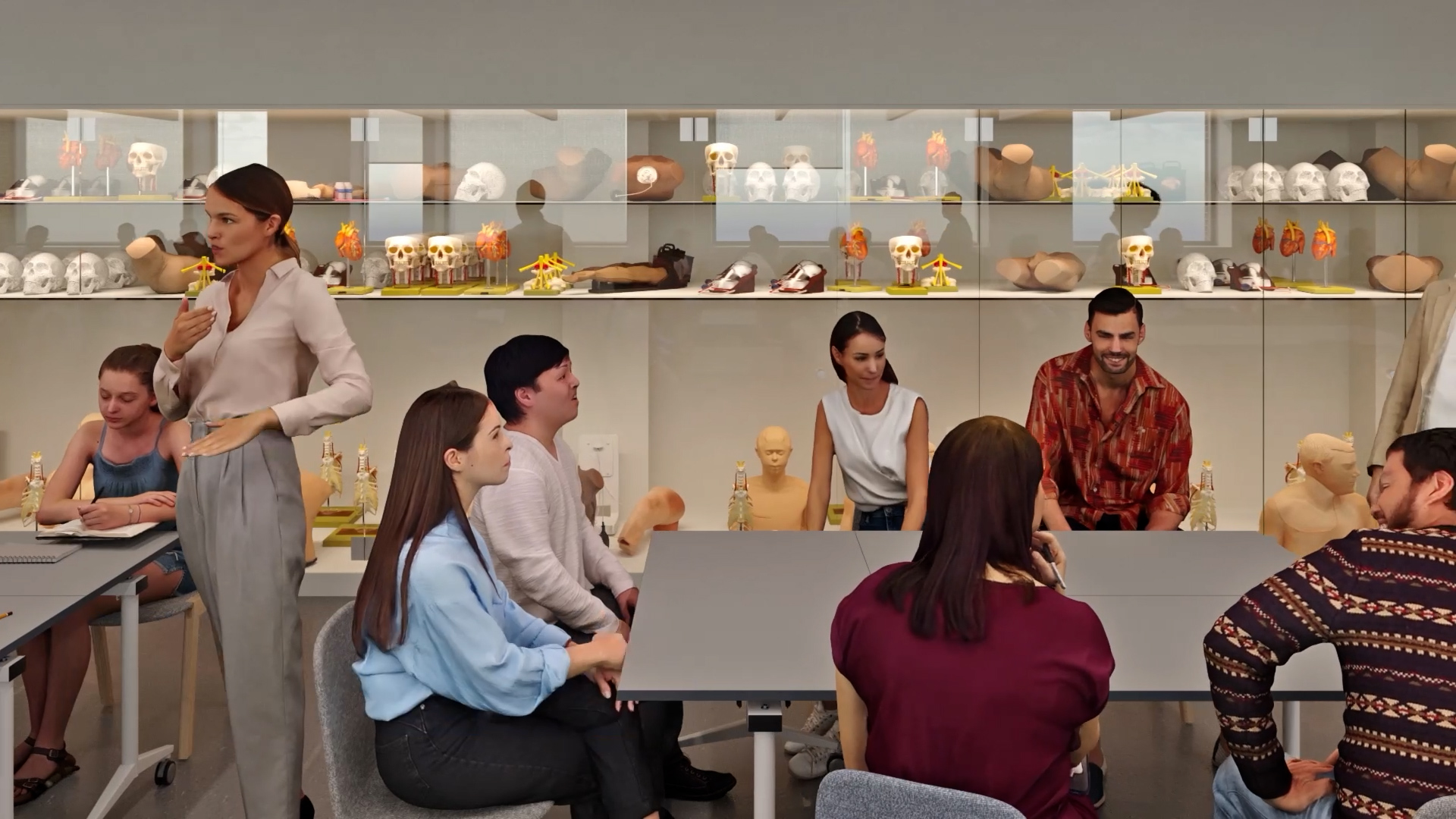All candidates are considered on an individual basis and we accept a broad range of qualifications. The entrance requirements listed apply to 2026 entry.
Required subjects
At least two from biology, chemistry, mathematics, physics, PE, and psychology.
A pass is normally required in science practical tests, where these are assessed separately.
GCSEs
GCSE at grade 4 (C) in maths and English
Those who wish to apply for this course, but do not meet the entry requirements, or have alternative qualifications to A levels should consider applying for the Science Foundation Year. This additional year will give you the necessary academic knowledge to progress onto a science course of your choosing, including Sport and Exercise Science BSc.
IB score
34 points overall or 6,6,6 in three HL certificates
IB requirements
HL6 and HL6 in two of biology, chemistry, maths, physics, psychology
Extended Project Qualification (EPQ)
If you have already achieved your EPQ at grade A you will automatically be offered one grade lower in a non-mandatory A level subject. If you are still studying for your EPQ you will receive the standard course offer, with a condition of one grade lower in a non-mandatory A level subject if you achieve an A grade in your EPQ.
Please note that if you qualify for an enhanced contextual offer, your EPQ will not be taken into consideration as we are unable to make any further adjustments to your offer.
Level 3 Core Maths
If you have already achieved your Level 3 Core Maths at grade A you will automatically be offered one grade lower in a non-mandatory A level subject. If you are still studying for your Level 3 Core Maths you will receive the standard course offer, and also an alternate offer with a condition of one grade lower in a non-mandatory A level subject if you achieve an A grade in your Level 3 Core Maths.
If you qualify for a contextual offer, your Level 3 Core Maths will be taken into consideration and the appropriate adjustment will be made to your offer.
Please note that if you qualify for an enhanced contextual offer, your Level 3 Core Maths will not be taken into consideration as we are unable to make any further adjustments to your offer.
We recognise that applicants have a wealth of different experiences and follow a variety of pathways into higher education.
Consequently we treat all applicants with alternative qualifications (besides A levels and the International Baccalaureate) on an individual basis, and we gladly accept students with a whole range of less conventional qualifications including:
- Access to HE Diploma
- Advanced Diploma
- BTEC HND/HNC
- BTEC Extended Diploma
This list is not exhaustive. The entry requirements for alternative qualifications can be quite specific; for example you may need to take certain modules and achieve a specified grade in those modules. Please contact us to discuss the transferability of your qualification. Please see the alternative qualifications page for more information.
RQF BTEC Nationals
- RQF Level 3 BTEC Subsidiary Diploma D plus two A levels grades AA in two of biology, chemistry, maths, physics, PE, and psychology (a BTEC in sport, sport science or related subjects will not be accepted alongside A level PE)
- RQF Level 3 BTEC National Extended Certificate D plus two A levels grades AA in two of biology, chemistry, maths, physics, PE, and psychology (a BTEC in sport, sport science or related subjects will not be accepted alongside A level PE)
Access to HE Diploma
Access to HE Diploma 36 Level 3 credits at Distinction and 9 Level 3 credits at Merit. 15 Level 3 credits must be in biological science and 15 Level 3 credits must be in chemistry.
If you are a Home applicant and do not meet the entry requirements for direct entry to this course, you may be interested in researching our Science with Foundation Year BSc or Science with Foundation Year MSci course. Students successfully completing and meeting the specific progression requirements of the Science with a Foundation Year course are guaranteed progression on to a selection of undergraduate courses. Please note progression to some courses may require meeting additional criteria such as a successful interview.
You can view all pathways and progression criteria in our progression table.
At the University of Nottingham, we have a valuable community of mature students and we appreciate their contribution to the wider student population. You can find lots of useful information on the mature students webpage.




